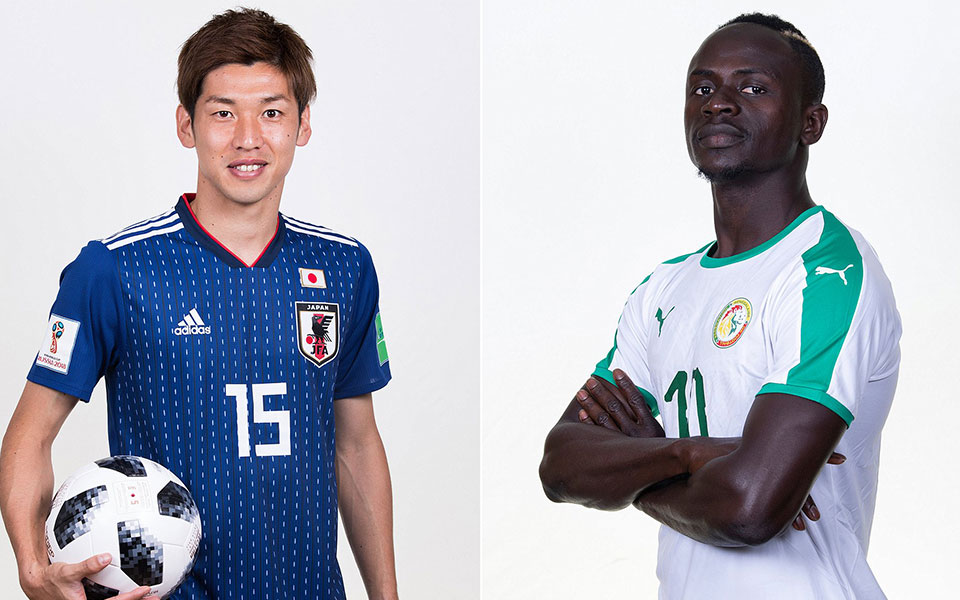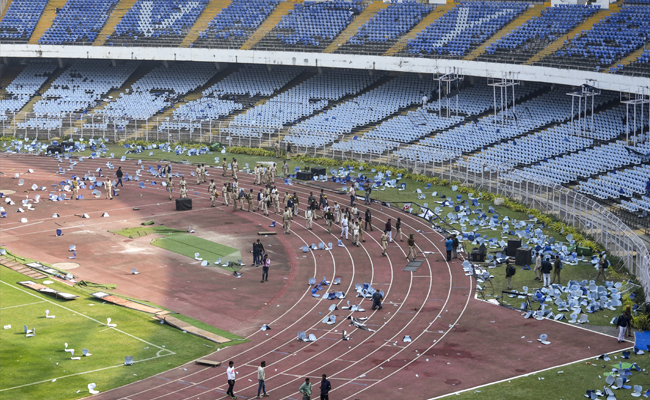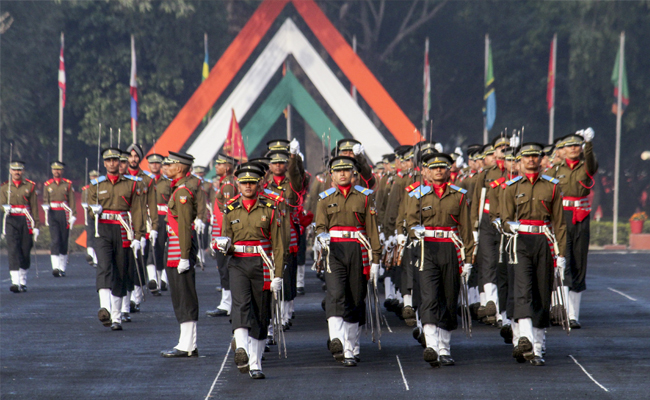Yekaterinburg, June 24: Takashi Inui inspired Japan to come back from behind twice to hold Senegal 2-2 in a FIFA World Cup Group H contest at the Ekaterinburg Arena here on Sunday.
The wide forward pulled Japan level in the 34th minute after forward Sadio Mane had given Senegal the lead in the 11th minute. Senegal got ahead again through right-back Moussa Wague but Inui assisted for veteran Keisuke Honda's equaliser in the 78th minute.
The hard-fought draw didn't do any harm to either of the sides as they are firmly in contention to reach the pre-quarterfinals. Following the draw, both Japan and Senegal have four points each after the conclusion of their respective second matches in Group H.
The Asian outfit showed a lot of determination and resoluteness to get a point from the game. The way the game started, but it seemed that the Africans will walk away winners like they did against Poland in their opener. But Japan were up to the task.
Senegal threatened early with their pace up front and relied on their counter-attack game. Especially right winger Ismail Sarr and young right-back Wague dominated Japanese left winger Inui and left-back Yuto Nagatomo.
Senegal took the lead in the 11th minute and Japan succumbed under early pressure for the opening goal. Wague crossed to the right but midfielder Genki Haraguchi botched an attempted headed clearance on the left and the ball fell to Youssouf Sabaly. The latter took a shot at goal and goalkeeper Eiji Kawashima punched the ball against the legs of Mane as it rolled into the net.
After the goal, Senegal took it easy as Japan took some time to get into the game. The goal certainly made Japan determined to find the equaliser.
They made some fine moves but always a Senegalese counter-attack was in their minds which were slightly stopping them from going full throttle. However, they did stretch Senegal in their own half as the Africans defended deep.
As the match crossed the 25-minute mark, Japan looked confident and more comfortable on the ball as the Senegal team had stopped pressing and chasing the ball.
Japan were rewarded for their efforts in the 34th minute as Nagatomo, on the left, brought down a pass from over the top before slipping the ball to Inui, who then curled a low shot past a couple of defenders and into the bottom right corner from 15 yards.
Five minutes later, off a counter-attack, Senegal could have regained the lead if M'biaye Niang had come up with a strong chip past an onrushing keeper Kawashima after being put through by Badoua Ndiaye.
In the second half, Japan continued to impress as Yuya Osako, who hardly made a decisive shot in the first half, tested Senegal goalkeeper Khadim Ndiaye twice within the first five minutes, one through a header and another with a rebound shot.
Osako then did well to gallop down the left corner of the Senegalse box before back-heeling the ball into the path of the marching Inui, who once again launched a lethal curling shot which beat Khadim and bounced off the crossbar in the 65th minute.
However, six minutes later, Senegal scored against the run of play when Wague blasted the ball into the net with a right-footer from the right as he connected a cross from Sabaly.
Senegal's lead lasted only seven minutes with Japan equalizing through Honda, who had come on as a substitute a minute after Senegal's goal. A cross was half-heartedly cleared by goalkeeper Khadim who came off his line and Inui grabbed the ball on the left before his cross to the right saw Honda's left-footer enter the Senegalese goal without resistance.
Later, both fought hard to score the winner but there was not any as the match ended 2-2.
Let the Truth be known. If you read VB and like VB, please be a VB Supporter and Help us deliver the Truth to one and all.
New Delhi (PTI): Police here have busted a crime syndicate involved in traffic fraud and extortion, arresting three people including the alleged mastermind who sold fake stickers to help commercial vehicles bypass no-entry restrictions, an official said on Saturday.
The police said they dismantled a third organised syndicate linked to traffic-related frauds, with the arrest of Rinku Rana alias Bhushan, his associate Sonu Sharma and Mukesh Kumar alias Pakodi, who was also connected to another extortion syndicate.
According to the police, Rinku Rana was running a well-organised network that facilitated the movement of commercial goods vehicles during restricted hours by selling fake 'marka' or stickers for Rs 2,000 to Rs 5,000 per vehicle every month. The stickers were falsely projected as authorisation to evade traffic challans.
During raids, the police recovered Rs 31 lakh in cash, property documents worth several crores of rupees, over 500 fake stickers and six mobile phones allegedly used to operate the syndicate.
The crackdown followed a complaint filed by a traffic police officer in April this year after a commercial vehicle tried to evade checking by producing a fake sticker claiming exemption from enforcement action.
Investigation revealed that social media groups were being used to coordinate the illegal movement of vehicles and alert drivers about traffic police checkpoints, police said.
"A parallel system was being run to cheat drivers and vehicle owners while undermining traffic enforcement. On the basis of evidence, provisions related to organised crime under the BNS were invoked," a senior police officer said.
Sonu Sharma, the police said, managed social media groups through which stickers were sold and real-time alerts were circulated regarding traffic police movement. He also acted as a link between Rana and drivers operating in the field.
In a related development, Mukesh Kumar alias Pakodi, an associate of Rajkumar alias Raju Meena, who was earlier arrested under the Maharashtra Control of Organised Crime Act (MCOCA), was also apprehended.
Mukesh allegedly helped extort money from transporters and was involved in blackmailing traffic police personnel by recording enforcement actions, the police said.
Investigators alleged the syndicate led by Rajkumar deployed drivers to deliberately violate traffic rules and secretly record police officials during challans, later using manipulated videos to extort money under threat of false allegations.
The police said that in total, eight accused belonging to three different organised crime syndicates linked to traffic frauds and extortion have been arrested so far.
Further investigation is underway to trace the remaining members, conduct financial probes, and analyse digital evidence recovered during the raids, officials added.





